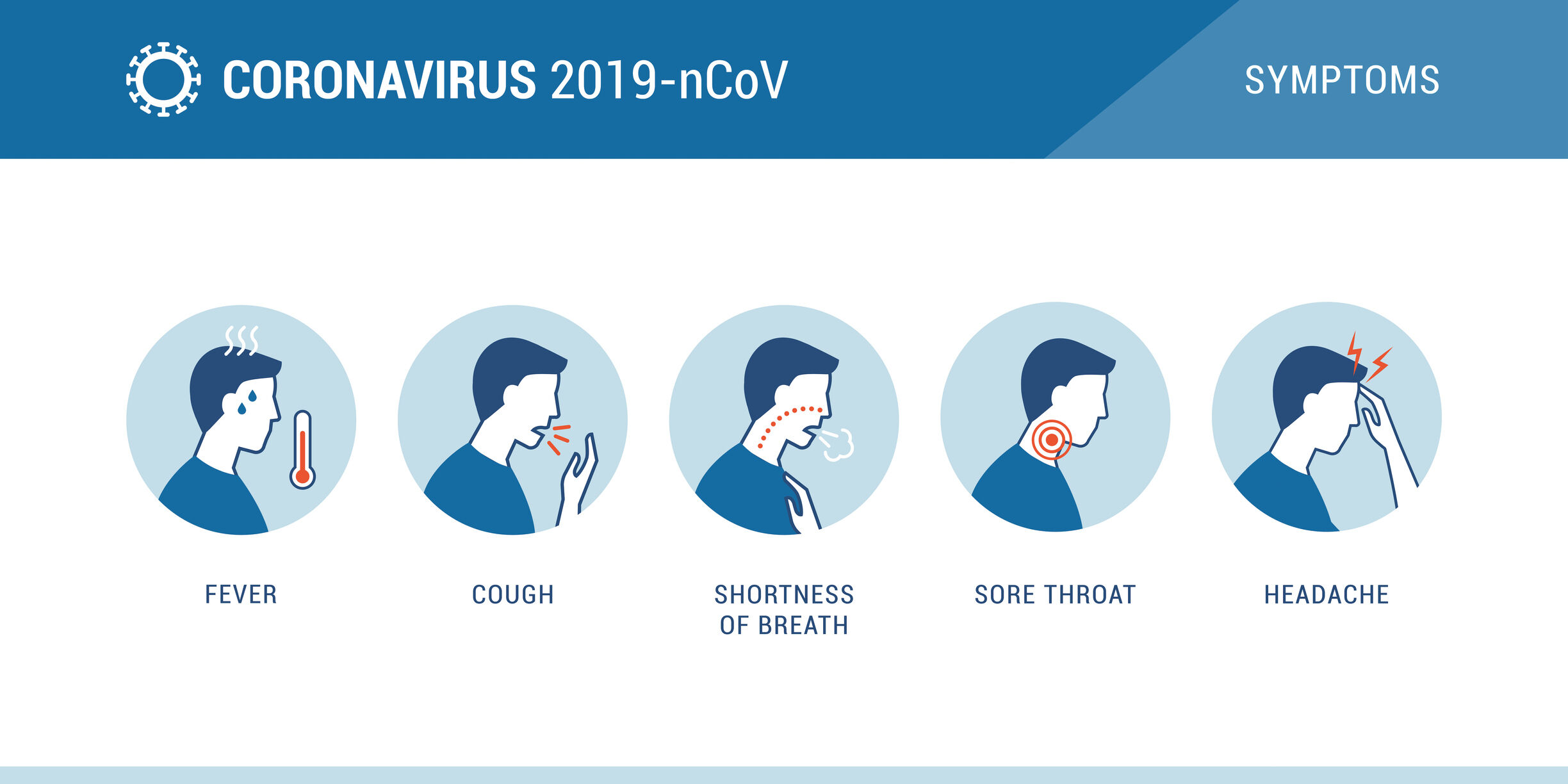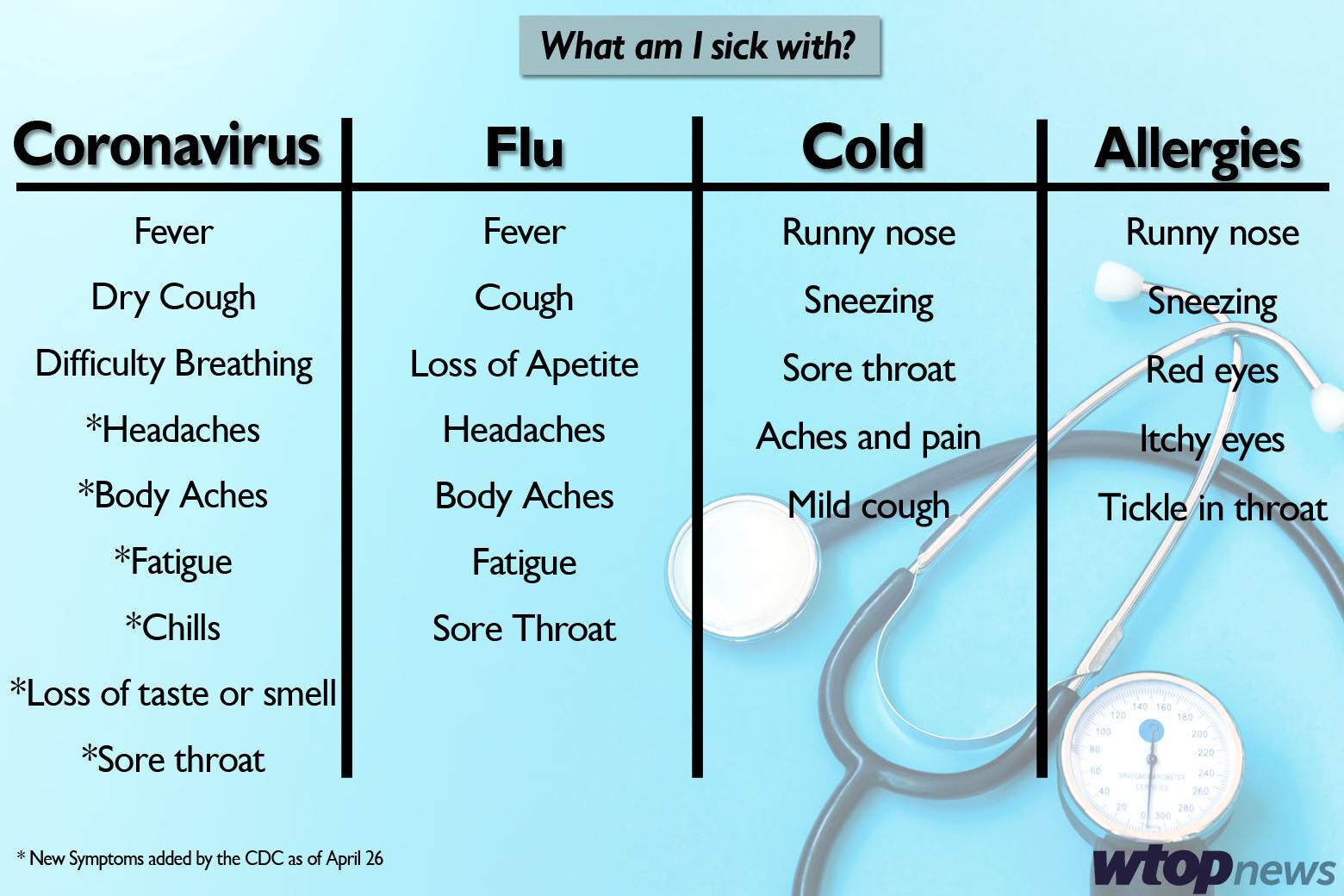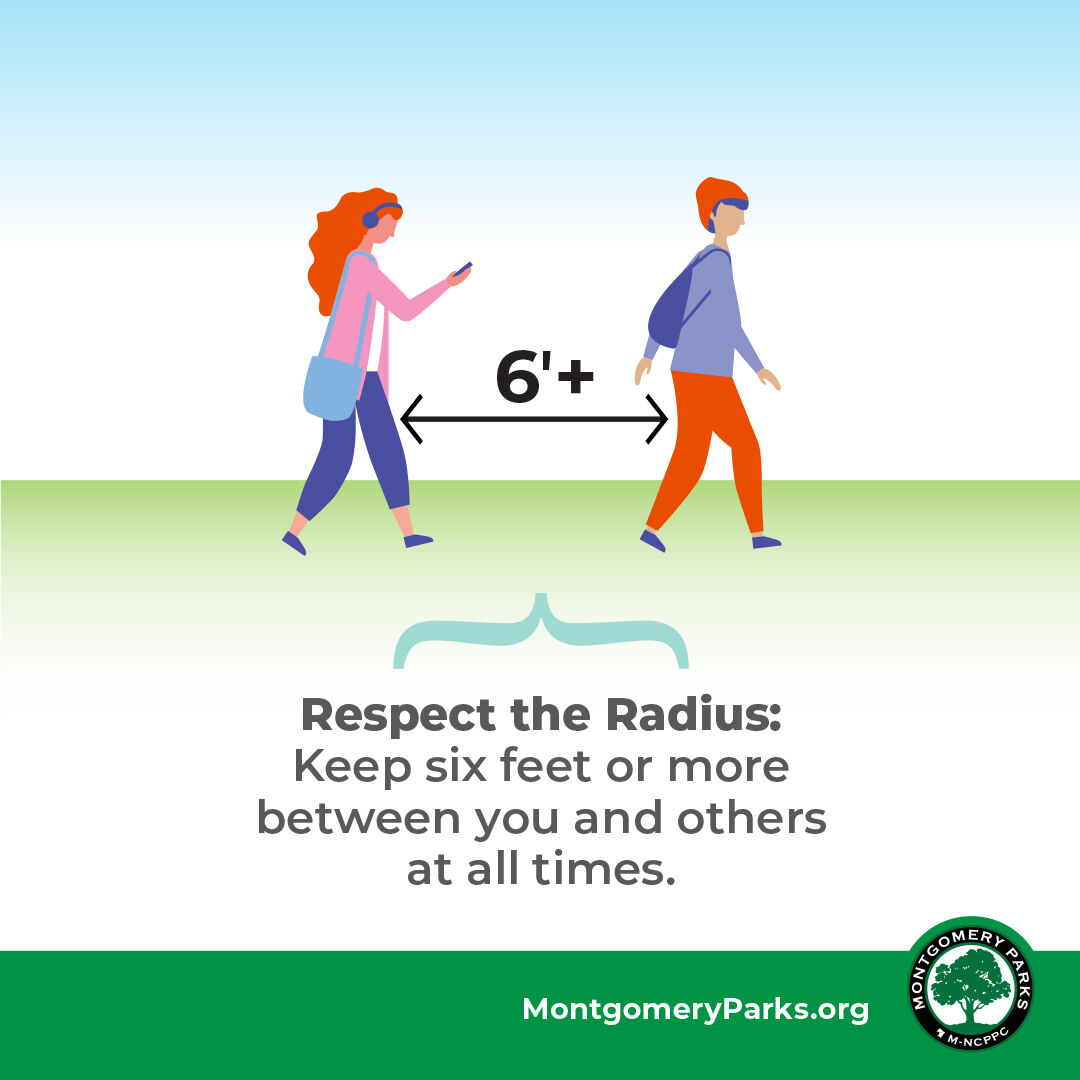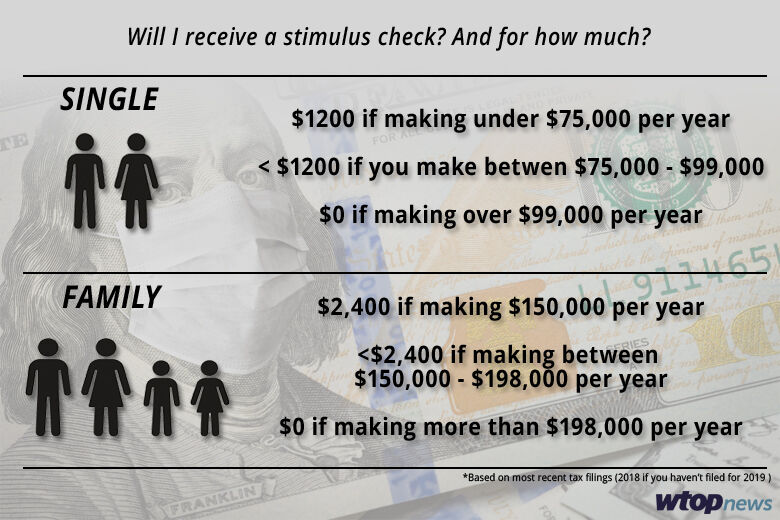
The global coronavirus outbreak that first emerged in Wuhan, China, late last year has changed life in the D.C. area.
When infection rates started burgeoning in D.C., Maryland and Virginia, state leaders declared states of emergency and announced several actions to curb the spread of COVID-19, the disease caused by the new coronavirus.
These measures include prohibiting large gatherings of people and closing bars, restaurants, theaters and gyms, among others. Jurisdictions also closed school buildings, and students transitioned to online learning for the rest of the school year. Some of these safety measures are begin lifted in the next few days.
The death toll from the COVID-19 pandemic surpassed 205,000 in the U.S. in October.
Click to see the latest number of cases nationally and internationally, according to Johns Hopkins University.
There’s seemingly as much misinformation as information about the virus. So here are some common questions about the coronavirus and what we really know, from the Centers for Disease Control and Prevention; the Virginia, Maryland and D.C. health departments and other sources.
Q: How many coronavirus cases are there in Maryland, Virginia and D. C.?
WTOP is tracking coronavirus data across Virginia, Maryland and D.C.
The coronavirus data include the number of coronavirus cases, deaths, recoveries and the total number of test results reported by each jurisdiction, among other data points. New numbers are updated each day as individual states release new data.
You can find the latest results and links to the health departments here.
Q: What’s opening and what is still closed?
Virginia and Maryland are currently in Phase Three of their reopenings plans. Montgomery County in Maryland is holding at Phase Two.
D.C. remains in Phase Two of its reopening.
Q: What advice is being given about wearing face masks during the coronavirus outbreak?
Initially, the CDC did not recommend you wear a mask to protect yourself from respiratory diseases, including COVID-19.
In light of new information about how people who lack symptoms can transmit the coronavirus before showing symptoms, the CDC recommends you wear face coverings in public areas where it is difficult to keep 6 or more feet from someone, like at the grocery store.
People who show symptoms of COVID-19 should wear masks to prevent the spread of the disease to others.
Here’s more guidance on wearing face masks and how to make one from things you have at home.
Q: Are there places where I have to wear a mask?
Yes. In Maryland, Gov. Larry Hogan issued an executive order requiring Marylanders to wear masks or face coverings inside grocery stores and other retailers throughout the state. People who ride any form of public transportation in Maryland also have to wear masks.
In D.C., Mayor Muriel Bowser issued an order requiring customers inside grocery stores to wear masks. It’s now also required while on Metro trains and buses.
In Virginia, Gov. Ralph Northam ordered that face coverings will be required inside public establishments.
Q: I don’t know how to sew. Is there another way to make a mask?
The Anne Arundel County, Maryland, health officer recently made a video showing how to make one out of a bandanna without sewing. Check it out.
Q: What is Metro doing about the coronavirus?
Metro returned to pre-pandemic service in August.
About the coronavirus
Q: What is the coronavirus exactly?
There are lots of coronaviruses, and most aren’t that serious. The CDC said this is what they call a novel coronavirus — something they haven’t seen in humans before. They have the DNA genome figured out, and it’s likely related to a bat virus, similar to SARS. The disease that’s caused by the new coronavirus is called COVID-19, which stands for “coronavirus disease 2019.”
Q: Where can I get tested for COVID-19?
D.C., Maryland and Virginia are opening new coronavirus testing sites with both drive-thru and walk-up options for adults, children and vulnerable populations as the pandemic grips the region. In addition, cities and counties have been conducting free testing at different locations.
Here is a list of where you can get tested.
Q: What are the symptoms of coronavirus?
The most common symptoms are fever, cough and shortness of breath, which most often appear two to 14 days after exposure to the virus. Some people have also reported muscle pain, headache, sore throat and new loss of taste or smell.
For most people, the new coronavirus causes only mild or moderate symptoms, such as fever and cough.
However, for some, especially older adults and people with existing health problems, it can cause more severe illness, including pneumonia.

Q: So, what should I be doing during the coronavirus outbreak?
The CDC is recommending the usual steps:
- Wash your hands often with soap and water for at least 20 seconds. If soap and water are not available, use an alcohol-based hand sanitizer.
- Avoid touching your eyes, nose and mouth with unwashed hands.
- Avoid close contact with people who are sick.
- Stay home when you are sick.
- Cover your cough or sneeze with a tissue, then throw the tissue in the trash.
- Clean and disinfect frequently touched objects and surfaces.
- Follow the CDC on Twitter for the latest announcements on the outbreak.
Q: How deadly is the coronavirus, compared with the flu?
The death toll from the COVID-19 pandemic surged to 200,000 in the U.S. in September; worldwide the death toll is eclipsed one million in late September.
Q: How long does it take for the body to fight off the coronavirus?
If everything works out OK, “that whole process evolves over a period of a week or two or three,” said Dr. Ray Viscidi, a virologist and professor of pediatrics and oncology at Johns Hopkins University School of Medicine. Read about how the whole process works.
D.C., Maryland and Virginia are all reporting recovery numbers in their results. You can find them on WTOP’s coronavirus results page. Find out what jurisdictions mean when they report that people have recovered from the coronavirus.
Q: If you get exposed to COVID-19, how long before you actually get sick?
Two to 14 days. That’s why the quarantines, or the amount of time a patient has to stay home if their doctor allows them to go, is two weeks.
Q: Is the coronavirus making me eat and drink a lot?
That’s not the virus, said Anne Arundel County Behavioral Health Director Sandy O’Neill; that’s stress, and there are better ways to deal with it.
“Those are perhaps coping skills that you turn to that are not perhaps the best coping skills,” O’Neill said, and if you’re the type who turns to food and drink when the going gets tough, you might want to get rid of what she called “environmental triggers,” such as alcohol and unhealthy foods that you might have handy, “so that it’s not the first that you see when you’re feeling stressed. … Think of something else you can do to help you with those feelings.”
Her suggestion? Go outside, even just for a few minutes to take a deep breath.
Q: When might the coronavirus outbreak end?
“The honest answer is, we don’t know,” said infectious disease specialist Dr. Glenn Wortmann, of MedStar Washington Hospital Center. His best estimate was six months to a year, although he acknowledged “whether we’ll be doing this, with everything shut down, I don’t think so.” His hope is that people who have had the virus will become immune to it, and that will slow the spread.
Q: Why does the number of test results vary so much from day to day?
People go to different places to get tested, and the specimens are sent to different labs, not only in Virginia, but also around the country.
“Those laboratories take their time sometimes in returning those tests to us,” said Fairfax County Health Department Epidemiologist Rene Najera. “Sometimes they do what we call ‘batching,’ where they get just a whole bunch of tests together and they wait until they hit a certain number. Some days we might get very few numbers of results because the lab is just not operating on that day. Sundays are the best example of that.
We try to even that out by averaging it for the whole week … and that’s the number that we really would encourage everybody to look at — the week-to-week trends instead of the day-by-day trends.
Q: How do we know if the coronavirus is still spreading in a given area?
That comes from talking to people who test positive. “If they haven’t been in contact with a known case that they know of, then they caught it somewhere in the community unknowingly. And that’s how we know that it’s in the community,” said Fairfax County Health Department epidemiologist Rene Najera.
Q: I keep hearing about social distancing during the coronavirus outbreak. What’s that?
It’s increasing the physical space between people to help keep the virus from spreading.
The recommendation for the coronavirus is that people stay at least 6 feet apart at all times. That’s why so many events have been canceled, and why places such as restaurants, bars and gyms are being closed.

Q: Social distancing during the coronavirus outbreak isn’t easy with small children.
True, but Dr. Steve Silvestro, of Metropolitan Pediatrics in North Bethesda, said getting outside is still OK. Activities such as hikes and bike rides are good for social distancing. Germs can live on outdoor surfaces, but that might be better than hanging around breathing the same indoor air as your kids and their friends. He had more tips for parents.
Anne Arundel County Health Officer Dr. Nilesh Kalyanaraman agreed, calling outdoor play “particularly good now.” He suggested forming a core group of kids and families your child interacts with, which will still be a much smaller groups than the dozens our hundreds they interact with at school.
Life during the pandemic
Q: How have grocery stores changed their practices during the coronavirus outbreak?
Stores have implemented special hours for senior citizens. Some are limiting how many customers can come into stores and how far apart they need to be. Some now provide a barrier between customers and cashiers. Others are limiting their hours.
Q: Should I be going to the doctor for reasons other than the coronavirus?
In May, Virginia Gov. Ralph Northam and Maryland Gov. Larry Hogan announced elective procedures could resume. Call your medical provider to check.
And while some people have been hospitalized because of the coronavirus, one Virginia doctor said those with severe symptoms unrelated to the virus shouldn’t delay medical treatment because of COVID-19 concerns.
Q: Can I go to the dentist during the coronavirus outbreak?
In May, Virginia Gov. Ralph Northam and Maryland Gov. Larry Hogan announced elective procedures could resume. Call your medical provider to check.
Q: What are schools doing to protect students from the coronavirus?
Most schools in Maryland, D.C. and Virginia started the school year with distance learning. But as the semester progresses, many jurisdictions are planning for at least some return-to-classrooms.
Q: What should I tell my children about the coronavirus?
Chris Taylor, a therapist at Rathbone & Associates in Montgomery County, said it is important to sit down and talk with your children about what is going on and validate their feelings.
“You don’t want to overwhelm them with facts, but I’d give them some facts,” Taylor said.
Tell them what you know, he suggested, such as this: Children are less likely to experience the serious symptoms of the illness. He also said it’s important for adults to keep their fears in check when talking to children.
“We definitely don’t want to put our anxiety onto the kids. We’re trying to calm them,” Taylor said.
Also, for children who are not in school, Taylor said keeping a routine is important. Write out a plan for the days that the children are home. That includes when they’ll study and when they can play.
“I think that really helps calm kids down and helps calm us down, I think, as well,” Taylor said.
Q: How are pregnant women faring during the coronavirus outbreak?
That’s not clear. “We don’t know if the virus can transmit to the fetus,” said Dr. Vinisha Amin, who specializes in hospital and family medicine at the University of Maryland Upper Chesapeake Medical Center in Bel Air. “And with that said, taking those extra precautionary measure to make sure you’re safe is very important.”
Q: Can I do the laundry of a person with the coronavirus? Can I mix it in with mine?
You should be OK as long as you play it safe, said Dr. Avni Jain, a primary care doctor with Adventist HealthCare Adventist Medical Group.
The CDC said you should wear gloves; wash according to manufacturer’s instructions, in the warmest appropriate temperature, and dry them completely, she said.
You should also wear gloves (or at least wash your hands afterward) and keep the clothes in a disposable hamper or disposable bag before washing them.
Coronavirus relief
Q: What’s the U.S. government doing about COVID-19?
President Donald Trump signed an unprecedented $2.2 trillion economic rescue package into law after swift and near-unanimous action by Congress to support businesses, rush resources to overburdened health care providers and help struggling families during the deepening coronavirus epidemic.
The legislation provided $1,200 direct payments to individuals and a flood of subsidized loans, grants and tax breaks to businesses facing extinction in an economic shutdown caused as Americans self-isolate by the tens of millions.
Here’s a breakdown of what people got.

WTOP’s Abigail Constantino, Colleen Kelleher, Teta Alim, Mike Murillo, Kristi King, Michelle Basch, Jack Moore, Melissa Howell, Luke Lukert, Will Vitka and Tiffany Arnold, as well as The Associated Press, contributed to this report.








